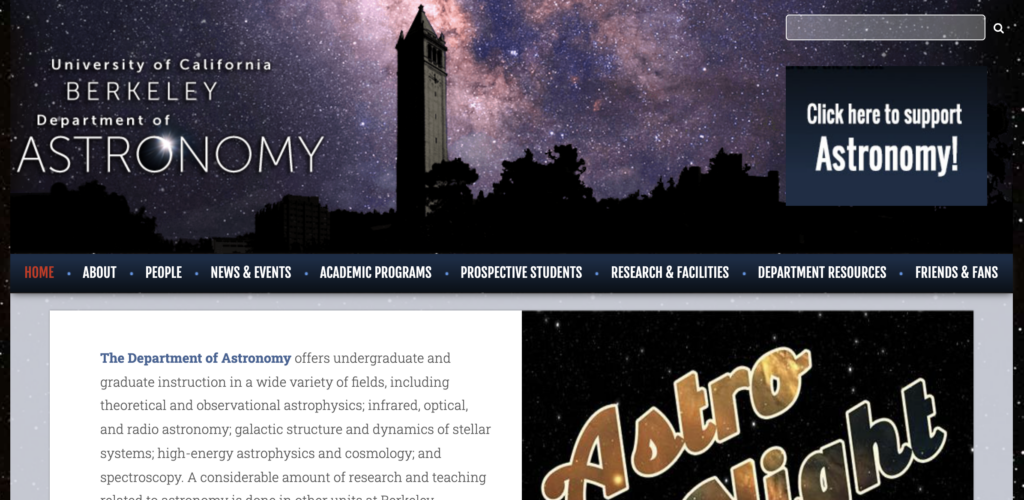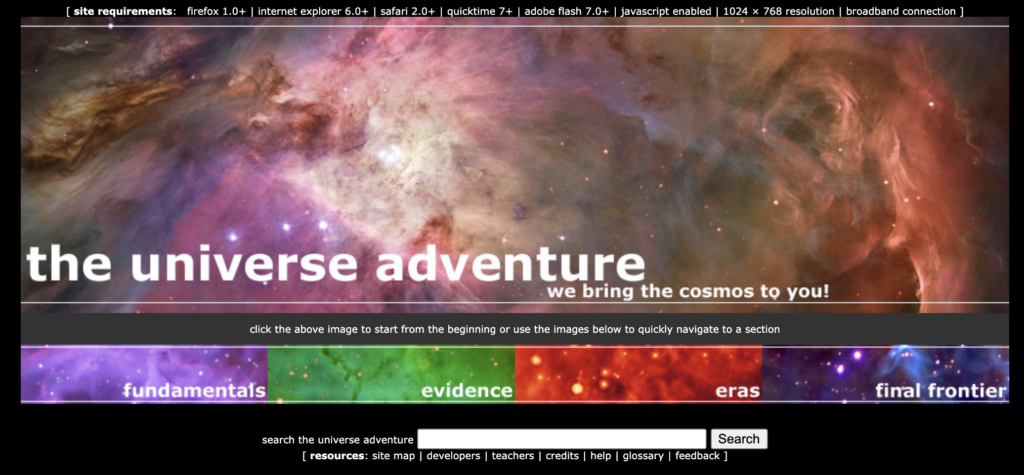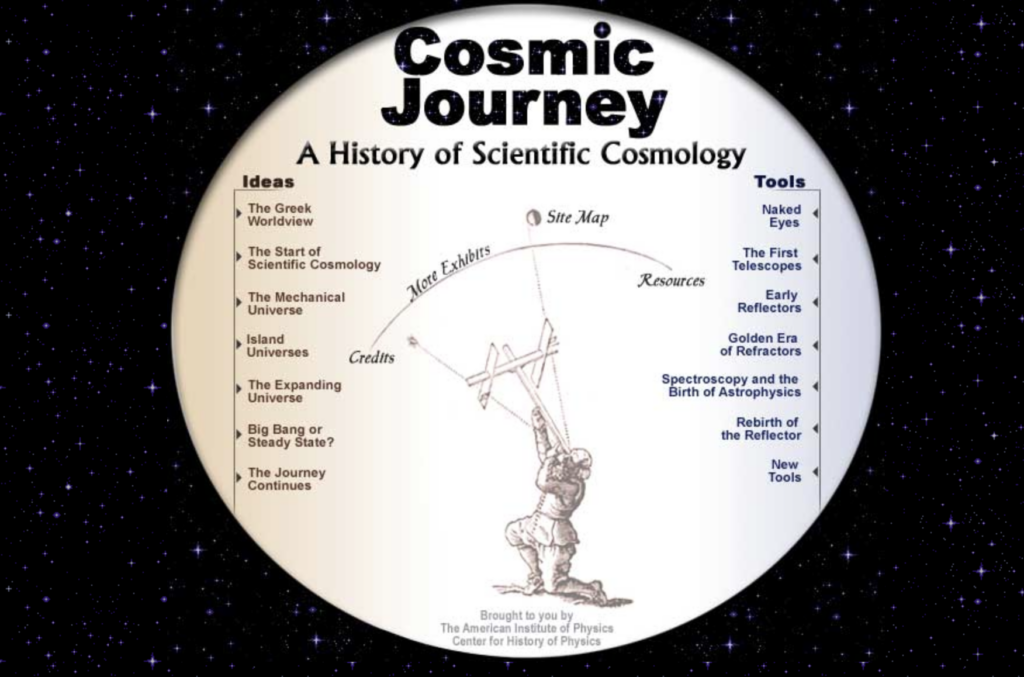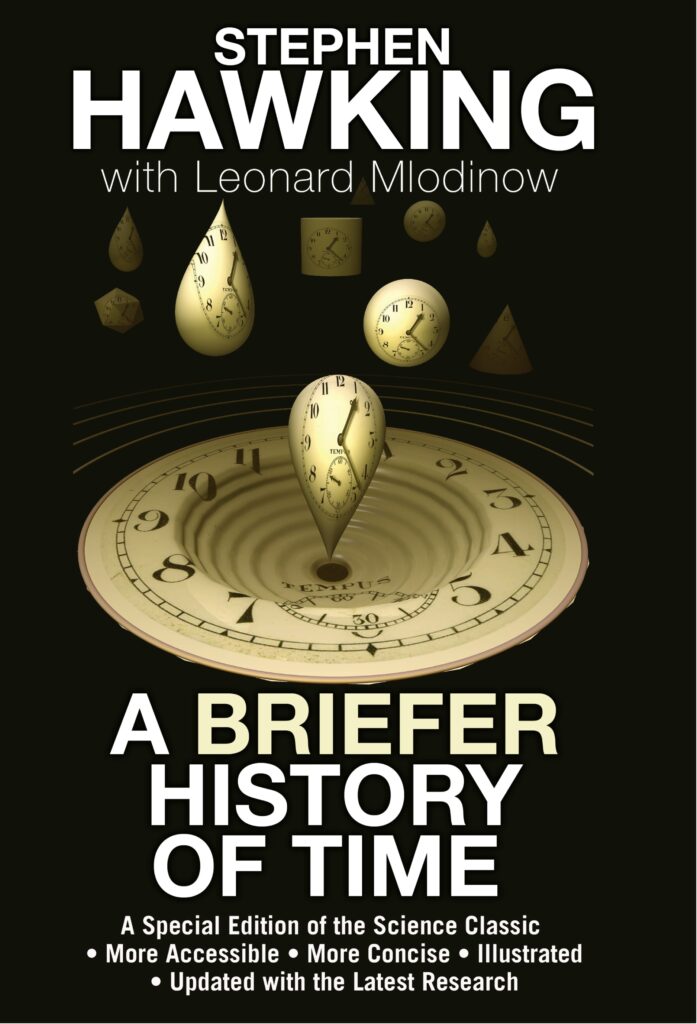
A Briefer History of Time
Stephen Hawking
Beginning this fall, the College of Letters & Science will give you something to talk about: a book by an author who has changed the way we view the world. This year, we’ll all be on the same page reading A Briefer History of Time.
Stephen Hawking
Stephen Hawking was born in Oxford in 1942, exactly 300 years after the death of Galileo. He studied physics at Oxford University and went on to pursue his graduate studies at Cambridge. In his early twenties he was diagnosed as having Amyotrophic Lateral Sclerosis, known in the UK as Motor Neurone Disease. He holds Newton’s chair as Lucasian Professor of Mathematics at Cambridge and is widely considered to be the greatest scientific thinker since Newton and Einstein.
For more information, see Hawking’s website.
Leonard Mlodinow
Leonard Mlodinow holds a PhD in theoretical physics from the University of California at Berkeley, and was on the physics faculty of California Institute of Technology, with which he is still affiliated. He has authored numerous publications in academic physics journals as well as in The Los Angeles Times and Discover Magazine. He also wrote the popular science books Euclid’s Window: The story of geometry from parallel lines to hyperspace (2001), Feynman’s Rainbow: a search for beauty in physics and in life (2003), and The Drunkard’s Walk: the story of randomness and its role in our lives (to appear in 2008), and is co-author, with Stephen Hawking, of A Briefer History of Time (2005) and The Grand Design (to appear in 2008), and, with Matt Costello, of the children’s book series The Kids of Einstein Elementary. His books appear in 25 languages. In addition, Dr. Mlodinow wrote for network television for many years, including the series MacGyver, and Star Trek: The Next Generation, and wrote the screenplay for Beyond the Horizon, an IMAX film starring Stephen Hawking, currently in production.
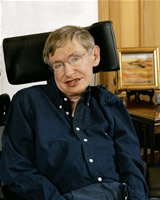
News and Resources
Origins of the universe: Stephen Hawking’s J. Robert Oppenheimer Lecture
Berkeley News | March 13, 2007
Faculty and undergrads get on the same page
By Jonathan King, Public Affairs | 07 March 2007
Cosmologist Stephen Hawking to draw crowds
By Yasmin Anwar, Media Relations | 06 March 2007
UC Berkeley Observation Facilities
Students interested in observing the universe for themselves will want to explore this list of UC Berkeley’s many observation facilities.
The Universe Adventure
The Smoot Group, headed by Berkeley’s newest Nobel Laureate George Smoot, has developed some educational materials about cosmology and astrophysics, including this web site, The Universe Adventure.
History of Cosmology
Students whose interests lie more in history of science will enjoy this web site. Its creators are especially interested in receiving comments and questions from both students and professors to help them improve the site!
Events
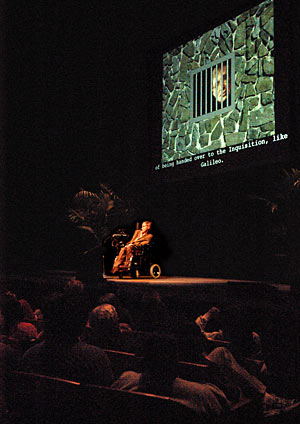
Strictly Speaking: Stephen W. Hawking
March 13, 2007, 07:30PM
Zellerbach Auditorium
Stephen Hawking’s J. Robert Oppenheimer Lecture, “The Origin of the Universe,” is presented by the Department of Physics and co-sponsored by the College of Letters and Science and Cal Performances. It will take place in Zellerbach Auditorium on Tuesday, March 13, at 7:30 p.m, with an overflow audience accommodated in Wheeler Hall; both venues are completely sold out.
Born exactly 300 years after the death of Galileo, Lucasian Professor of Mathematics at Cambridge University Stephen W. Hawking is widely considered to be the greatest scientific thinker since Newton and Einstein. In a talk aimed at the general public, Professor Hawking discusses theories on the Origin of the Universe. He explains how time can have a beginning and the progress made by cosmologists in an area that has traditionally belonged to theologists and philosophers.
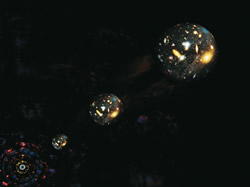
The Art of Writing Science
Monday, March 19, 2007
4:00-5:30
Toll Room, Alumni House
Four eminent writers will talk about the experience – the challenges and rewards – of writing about science from diverse perspectives and for diverse audiences. This panel is presented in conjunction with the new On the Same Page initiative in the College of Letters & Science.
Featuring
Walter Alvarez, Professor of Earth and Planetary Science at U.C. Berkeley and author of T. rex and the Crater of Doom
Timothy Ferris, Professor Emeritus of Journalism at U.C. Berkeley and author of The Whole Shebang and Coming of Age in the Milky Way
Leonard Mlodinow, a physicist at the California Institute of Technology, co-author of A Briefer History of Time, and author of Euclid’s Window and Feynman’s Rainbow
Anne Nesbet, Professor of Slavic Languages and Literatures at U.C. Berkeley and author of Savage Junctures: Sergei Eisenstein and the Shape of Thinking; currently working on a book on neurobiology and cinema
Admission is free, and everyone is welcome.
Co-sponsored by the College of Letters & Science and the Doreen B. Townsend Center for the Humanities
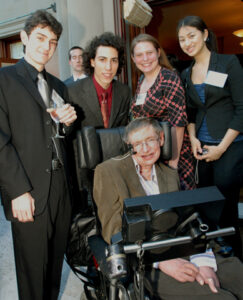
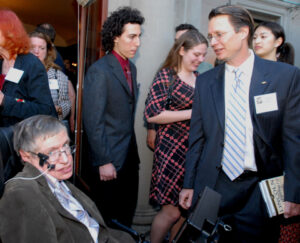
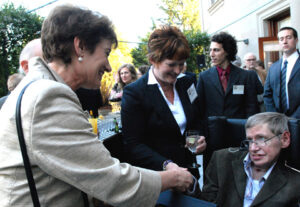
Engage
Read the Book
All L&S freshmen will receive a free copy by mail. L&S faculty will receive a postcard that they can redeem for a free copy. All other Cal students, faculty, and staff can get a 30% discount on the book at the ASUC general store.
Enter a raffle to meet Hawking at a reception at the Chancellor’s House.
Discuss the Book
Freshman and Sophomore Seminars about the book will be offered in Spring 2007.
Faculty members will lead one-time discussions about the book in the residence halls in February and March.
And some faculty members will be incorporating the book into one of their regular spring courses.
Freshman and Sophomore Seminars
UC Berkeley’s Freshman and Sophomore Seminars provide an unparalleled opportunity for faculty members and small groups of lower-division students to explore a scholarly topic of mutual interest together, in the spirit of learning for its own sake. By taking a seminar a student becomes an active member of Berkeley’s intellectual community. In spring 2007, the program will be featuring several seminars related to A Briefer History of Time:
Astronomy 24, Sec. 1: Space, Time, and the Cosmos (1 unit, P/NP)
Astronomy 39, Sec. 2: The Nature of Time (1.5 units, P/NP) Open to freshmen and sophomores.
Engineering 24, Sec. 1: Time, Money, and Love in the Age of Technology (1 unit, P/NP)
History of Art 24, Sec. 1: Classic Movies as Visual Art (1 unit, P/NP)
Mathematics 24, Sec. 1: What is Happening in Math and Science? (1 unit, P/NP)
Mathematics 24, Sec. 3: The Geometry of Relativity (1 unit, P/NP)
Physics 24, Sec. 1: Thinking Big: Space, Time and Our Universe (1 unit, P/NP)
Physics 24, Sec. 2: The Big Bang and the Early Universe (1 unit, P/NP)
Physics 24, Sec. 3: Physics of the Infinitesimally Small to Understand the Infinitely Large: Particle Physics and Cosmology in the Next Decade (1 unit, P/NP)
These are also marked on the Freshman and Sophomore Seminars website with the On the Same Page logo.
Discussions
First-year students who would like to discuss A Briefer History of Time with a professor and a small group of fellow students may sign up for an hour-and-a-half discussion session to take place in the weeks leading up to Hawking’s public presentation on March 13, 2007.
If you attend one or more of these discussion sessions you will automatically be entered into a raffle to meet Stephen Hawking at a reception at the Chancellor’s house preceding the public event in Zellerbach Hall. You may sign up for more than one discussion session apiece. Raffle entries are limited to one per student.
Choose whichever session best matches your schedule and your interests. You will receive a reminder email the week before your session meets. If you end up enrolling in a class that conflicts with the session you have signed up for, you can re-enter the system and switch to a different discussion session (with seats available) at a later point.
Registration for discussion sessions is closed.
Spring 2007 Discussion Session Leaders
Gibor Basri – Professor and Chair of Astronomy
Robert J. Birgeneau – Chancellor and Professor of Physics
Leo Blitz – Professor of Astronomy
Thomas W. Cline – Professor of Molecular and Cell Biology
Marvin L. Cohen – Professor of Physics
Marc Davis – Professor of Astronomy and Physics
Timothy Ferris – Emeritus Professor of Journalism
Alexei V. Filippenko – Professor of Astronomy
Frances Hellman – Professor of Physics
Christina Maslach – Vice Provost of Undergraduate Education, Interim Dean of the Undergraduate Division, L&S and Professor of Psychology
Richard A. Muller – Professor of Physics
Michael N. Nagler – Emeritus Professor of Classics
and Comparative Literature
W. Geoffrey Owen – L&S Dean of Biological Sciences and Professor of Molecular and Cell Biology and Neuroscience
Kevin Padian – Professor of Integrative Biology
Eliot Quataert – Professor of Astronomy
Kenneth A. Ribet – Professor of Mathematics
Rainer K. Sachs – Emeritus Professor of Math and Physics
Charles H. Townes – Professor of Physics
Bernard Sadoulet – Professor of Physics
George F. Smoot – Professor of Physics
Other Courses
Faculty members in Letters & Science have been encouraged to assign A Briefer History of Time or an excerpt from it in their lower-division or upper-division courses. As these courses come to our attention we will list them below.
ISF C100/Scandinavian C114: Word and Image, Professor Karin Sanders, Monday and Wednesday 4-5:30, 150 GSPP
Astro 12/EPS 12/ L&S C70T: The Planets, Professors Michael Manga and Geoffrey Marcy, Tuesday and Thursday 11:00-12:30, 100 Lewis Hall
L&S C70V/Physics C10: Physics for Future Presidents, Professor Richard Muller, Tuesday and Thursday 9:30-11:00, 1 Pimentel Hall
Molecular and Cell Biology 61: Brain, Mind, and Behavior, Professor David Presti, Tuesday and Thursday 9:30-11:00, Wheeler Auditorium
Peace and Conflict Studies 84, Sec. 1: Peace on Earth, Golden Rules, and the World’s Religions, Lecturer Americ Azevedo, Thursday 2:00-4:00, 240 Mulford Hall
Remember that all Cal students can receive a 30% discount on the book by showing their Cal ID at the ASUC general bookstore.

